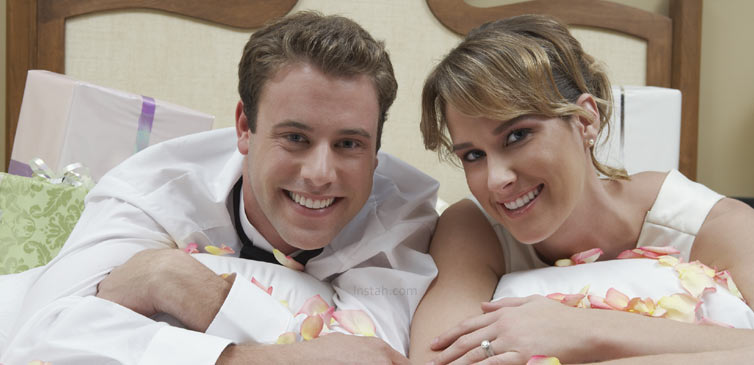Marriage is one of the most significant decisions in life. It involves more than a few crucial financial decisions, assets, housing, kids, etc. Hence, when it comes to tying the knot, many people prefer to take time to sort through the concerns without making haste. Marriage in the later ages has become a pretty common phenomenon these days, and people mostly do not bother about the ideal period of marriage.

However, marrying late has both pros and cons, and everyone, irrespective of gender, should consider those before deciding on it. So, what are the benefits and pitfalls of late marriages? Let’s explore those through this article. There are disadvantages of early marriage, too, and we have shared an interesting write-up here.
Advantages Of Getting Married Late in Life
We will start with all those advantages one can enjoy by marrying later in life. Check them out:
1. Enough Time For Self-Discovery
Discovering the ‘self’ before taking nuptial vows is essential to leading a happy and contented married life. However, many people remain unaware of their own identity before getting married. They fail to realize their ideas of dreams, success, and happiness at a younger age. Taking more time to get married can give them enough scope to understand what an ideal life is to them and how they want to spend the rest of their lives.
2. Building Of Better Perspectives
Human perspectives keep changing with age. As we age, we learn to think differently and develop better views of everything. What we like during our teenage does not attract us anymore in our mid-twenties. Everything we do in our mid-twenties seems to be crazy in our thirties. This change is highly beneficial for the inner growth of an individual. It helps them deal with marriage efficiently. Getting married in middle age means allowing the ‘self’ to grow and change to be prepared for the new life.
3. Freedom For A Longer Time
Marriage comes with many responsibilities, which must be carried out with utmost love and dedication for the rest of life. Life after marriage often becomes routine-bound, and it sometimes turns out to be quite dull. Contrarily, getting married a little later means experiencing freedom and exploring life for longer. It allows individuals to make decisions without any sense of responsibility, which is a great opportunity to enjoy life to the fullest.
4. Maturity And Wisdom Matter
It is said that ‘maturity does not come with age, it comes with experience’. At the same time, it is also true that we become more experienced as we age. Experience teaches us many things about life and helps us make decisions more maturely by keeping all our expectations realistic. We develop a better idea of a relationship and have a good sense of what we seek in marital life. Hence, marrying later means getting wiser over time and becoming capable enough to handle and prioritize marriage.
5. A Better Future Ahead
Getting married in the middle ages is also a great idea for building a financially secure future. After marriage, a career often becomes the secondary focus, leading to financial emergencies occasionally. Smart people utilize the time before the wedding by focusing on their future goals and establishing their dream careers. This helps them create a substantial bank balance for a stable future and ensure financial security for the rest of their life.

Disadvantages Of Getting Married Later in Life
As we have learned how delayed marriages can benefit us, let’s look at the disadvantages, too. Here we go:
1. Precedent Self-Dependence
Whether before or after marriage, self-dependence is critical in today’s life. But a delayed marriage can make self-dependence too much of a priority. Individuals who are set in their ways and have learned to use their finances consider it difficult to compromise or make adjustments in a relationship. Typically, they find themselves not prepared to make the adjustments necessary to be in a family.
2. Calling Of ‘Parenthood’
With delayed marriage, the calling of parenthood becomes high. The more one takes time to get married, the more prominent it becomes. Babies turn out to be the most discussed topic everywhere in late marriages, and individuals cannot ignore the rush to have kids. The situation worsens when the fact that ‘old friends already have school-going kids’ gives an immediate weird feeling!
Relationship Between Parenthood and Late Marriage
| Aspect | Impact of Late Marriage | Possible Solutions |
|---|---|---|
| Fertility Decline | Lower fertility rates as age increases. | Consider fertility treatments like IVF. |
| Risk of Complications | Higher risks of genetic issues and complications. | Get regular medical check-ups and counseling. |
| Pressure to Have Children | Increased social and personal pressure. | Communicate openly and plan early. |
| Physical Energy | Lower energy levels for active parenting. | Maintain a healthy lifestyle and exercise. |
| Time for Childbearing | Shorter window to have children. | Plan family size early or consider adoption. |
3. No Zeal And Excitement
Though not always, in most cases, the younger age’s zeal and excitement fade away with age. As we grow up, we start thinking and believing more maturely, which prevents us from going wild like our young days. It can lead to a boring marital life with limited enthusiasm and reduced sexual activities.
4. Complicated Conception
Marriage in the Middle Ages can make conceiving complicated and risky for individuals. Both men and women can find it challenging to have healthy babies when they decide to take nuptial vows after a certain age. According to experts, they are more likely to have kids with genetic problems, including Down’s Syndrome, and it’s all about their biological issues.
Impact of Age on Fertility and Conception
| Age Group | Fertility Rate | Risk of Complications |
|---|---|---|
| 20-25 years | High fertility rate | Low risk of complications |
| 25-30 years | Moderate fertility rate | Moderate risk of complications |
| 30-35 years | Declining fertility rate | Increased risk of complications |
| 35+ years | Significantly reduced fertility rate | High risk of complications |
5. Less Time Spent Together
Giving each other enough time is one of the most important conditions of a successful marriage. However, it often becomes hard for couples in a late marriage to spend quality time together as a job and career become more important to them. Too much focus on professional life takes a toll on personal life, thereby risking the marriage.
In a nutshell, tying the knot in the middle ages has its own advantages and disadvantages. It is up to the people how they want their married life to flow and how prepared they are to deal with the associated problems. Know more about the perfect age of marriage.
Getting Married Later in Life FAQ
What age is too late to get married?
It depends on a person’s circumstances. However, generally speaking, people in their late twenties or early thirties are usually ready to get married.
If you are older than this, there is a greater chance that you will not be able to conceive naturally and may need fertility treatments. If you are younger than this, you must consider your future goals and whether getting married is something you want.
Marriage does not guarantee happiness, and there may be times when the relationship does not work out. Therefore, it is essential to weigh all the pros and cons before deciding.
Is 35 too late to get married?
Each person has different preferences and needs. However, the statistics show that most people prefer to marry in their early twenties.
There are many reasons for this. First, people are still growing and developing mentally and emotionally at this age, making them more ready to commit to a relationship. Second, there is a lot of excitement and anticipation associated with getting married in your twenties. Finally, when you reach your thirties, many friends may already have children, making getting married seem less exciting.
Is it OK to marry After 30?
There is no one-size-fits-all answer to this question, as deciding when to marry is personal. Keeping a few things in mind might help if you consider marrying after 30.
First and foremost, it is essential to think about your long-term happiness. If you are ok with your present life and relationships, there is no need to rush into anything. However, if you feel you are missing out on something or haven’t found the right person, it may be worth considering getting married later in life.
Another thing to consider is your career. If you are happy with your job and its future and feel like you have all the skills necessary for a successful marriage, then, by all means, get married later on in life. However, waiting might be a better option if you are not content with your job or feel like your skills may not be enough for a successful marriage.
Finally, remember that marriage does not happen overnight; building a strong relationship takes time. So, if getting married later in life feels too rushed or like everything will change overnight once the wedding happens, it might not be your best idea.
What are the problems of late marriage?
There are many problems with late marriage. Some of the major problems are as follows:
- A decline in fertility rates after the 30.
- Increase in divorce rates after the age of 30.
- The average life expectancy for married people after 30 is shorter.
- Children born to couples who marry later have lower IQs and are more likely to have behavioral problems.
